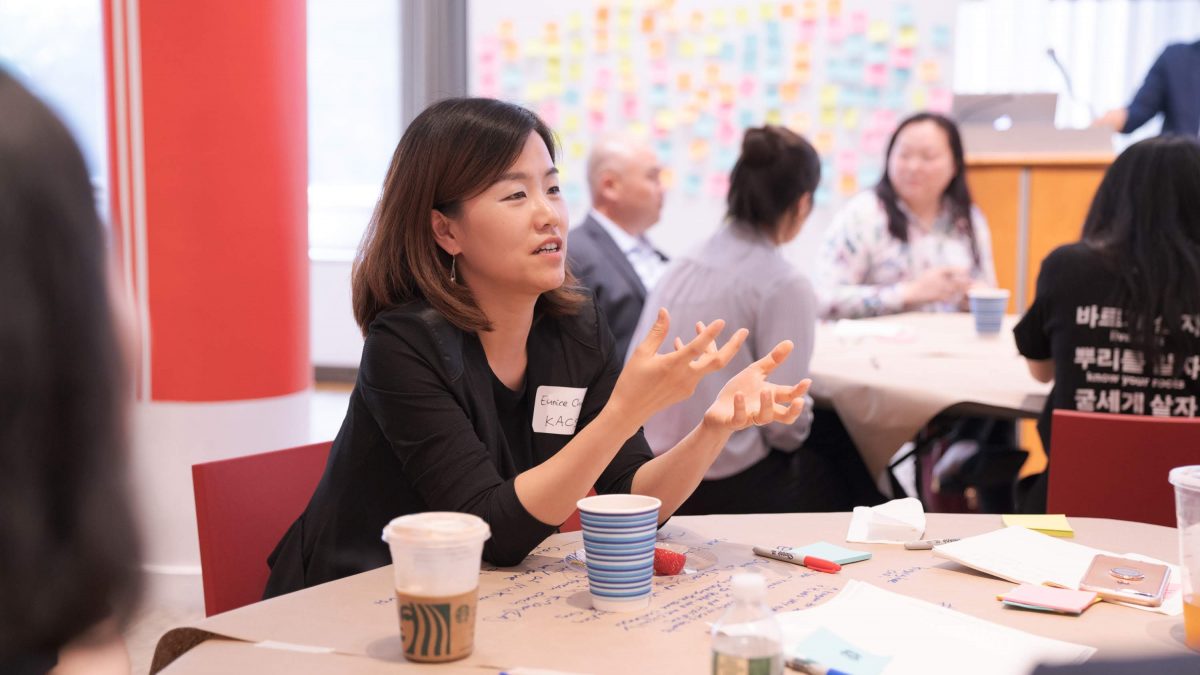
![]()
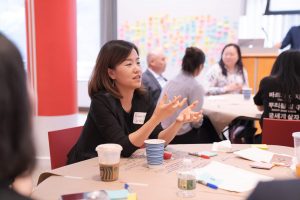
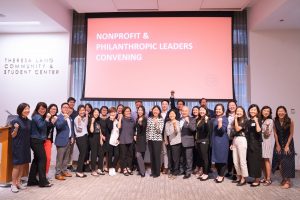
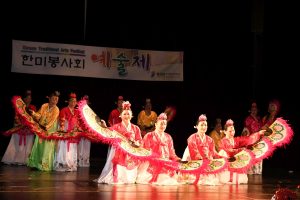

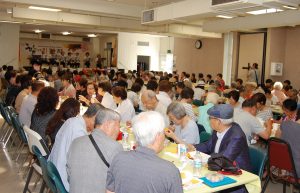
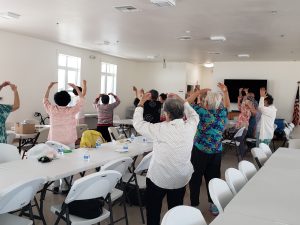
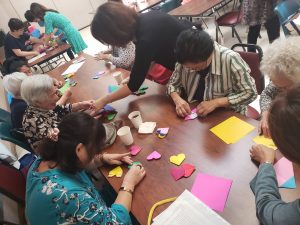

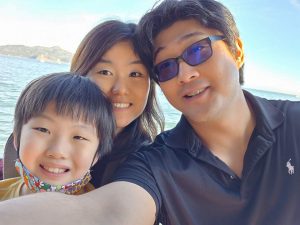
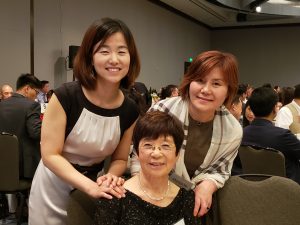
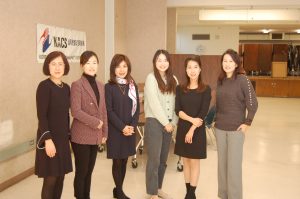

Eunice Chun
Executive Director,
Korean American Community Services
PROFILE:
Over the past decade, Eunice has been actively advocating for immigrants and underserved populations, including seniors and low-income families, by increasing access to community resources and providing opportunities for community involvement and civic engagement. Prior to joining KACS in 2014, she worked at various non-profit organizations in the Bay Area, including an advocate helping Korean women and families endangered by domestic violence. Eunice came to the U.S. from South Korea in 2001 and got her bachelor’s degree in broadcasting and communication arts, and a master’s in advertising. She currently lives with her husband and a son in San Jose and enjoys traveling and watching old movies with family in her spare time.
What brought you to KACS and how did you decide to pursue your current career?
During my graduate school years, I volunteered for two years with the Korean Community Center of the East Bay (KCCEB) in 2009 and their domestic violence program, Shimtuh as an advocate. Also, I was a language advocate for Asian Women Shelter. Through that experience, I fell in love with non-profit work, and I was thinking of pursuing this career for the rest of my life. After marriage with my husband, while I was looking to pursue social work in school, I had a chance to get a job interview at KACS. It was late November 2013, and my interview was on the day when KACS held the annual Thanksgiving event for Korean seniors. I was deeply impressed to witness how KACS worked hard to serve seniors and Korean Americans with various services and programs, including traditional cultural activities here in the U.S. “What a gem KACS is to the Korean community,” I thought and wanted to join them.
I officially began working for KACS as Assistant Office Manager. At that time, the executive director (ED) position was vacant, and I was tapped as Acting ED in 2014 and then promoted to ED officially in 2015. Since then, I have been striving to provide various services for the neediest Korean Americans in Santa Clara County, in line with KACS’s mission. I am thankful to KACS’s board of directors, staff, and our members for all their support. It is very gratifying to work for an organization that aligns with my values, contributing to the well-being of the community.
Tell us about KACS, its programs and services. What are some specific KACS programs or projects you are currently working on?
Korean American Community Services was first established in 1979 in San Jose to help early Korean immigrants in the Bay Area with their social service applications and public benefit-related paperwork. Since then, KACS has been expanded and provided diverse community service programs, including Senior Nutrition, Senior Well-Being (classes for seniors), Toddler co-op program, Youth volunteer programs, and ten or more Cultural Programs educational seminars each year. These programs contribute to increasing the visibility of Korean Americans among the local population, but they also provide Korean immigrants with cultural platforms where they can find solace and encouragement.
In addition, to help deal with the pandemic, we still provide Senior Meal Service five days a week, and Senior Care Programs that includes senior care packages contains masks, hand sanitizers, and picture- and word-puzzles that can help prevent Alzheimer’s disease, all via drive-through or delivery services. A newer program is the Bridging Program, where we introduce caregivers to isolated seniors living alone. Through this service, we help Korean In-home Supportive Service (IHSS) caregivers with their training. We also provide our medical caregivers to those who are reluctant to receive caregivers provided by the County. Once the pandemic situation eases, we plan to expand our services to include transportation and medical interpreting services for hospital visits and doctor’s appointments.
How has the Covid-19 pandemic affected KACS and its work?
From the organization’s perspective, the pandemic effectively eliminated KACS’s program income and event revenue since we had to cancel all of our in-person classes and our annual gala. As a result, we had to cut our annual operating budget by more than 10%. We also feel our programs’ efficiency has been compromised because of the absence of immediate feedback and synergistic effects coming from in-person, face-to-face programs. Particularly our senior clients seem to be experiencing difficulties participating in the services provided in a virtual format.
Even though we open Mon-Fri, from 9-5 to provide social services and senior nutrition program every day, we are aware of the overall and deepening psychological, physical, and social distress our senior populations are experiencing. For many, participation in KACS senior wellness programs had been only outside activity away from home, but now they tend to feel imprisoned. I still respect how our seniors try hard to hang in there and hope this pandemic may pass soon.
We keep hearing from the City and the County; senior programs may be the last ones to re-open even the shelter in place order is lifted due to the high risks of holding group events with this vulnerable population. Until we can feel confident about ensuring their safety, we plan to continue the current limited in-person appointment-based social services and drive-through mode of senior meal program operation.
How have you been affected, personally and professionally, by the pandemic?
Personally, I, too, underwent many changes. It was difficult for me to carry out the duties of a full-time mom, a full-time worker, and a full-time teacher, all within the confines of my home. To untangle each duty’s boundaries, I decided to allow myself to rest when I needed the break. The most significant change for me has been re-discovering the importance of striking the right balance between work and personal life by spending quality time with my family over the weekends, even when some work needs to be finished. (E.D. works never stopped!)
Tell us about some memorable moments from your work at KACS.
We had a program called “Fall Prevention Program,” which the City required KACS to complete annually. Because this program was conducted in English, I had to work extra hard to encourage seniors to participate. I never forget this senior man who registered but later sustained an injury and couldn’t attend most classes. However, he showed up on graduation day even when he had difficulty just sitting up. I asked him why he was here, and he said, “I came because KACS stressed the importance of the program, and I wanted to contribute to KACS by attending the graduation at least.” I felt touched by his warm heart and love for KACS. I remember many other seniors; for example, a senior who recovered from a mental health issue by participating in one of our wellness programs, and now she is no longer in need of taking her medication. Another senior who overcame depression associated with six months of self-imposed isolation later became a volunteer at KACS to help others.
Walking through life-changing and life-saving journeys together, I realize it is not just medical doctors who save lives. Still, our staff and I can also positively impact someone’s life, which passes on the hope to someone else in the community. It makes me feel proud and satisfied. These kinds of warm hearts of the seniors and their willingness to share their love with others are the driving forces I have worked with KACS for the last seven years.
What are some of the qualities you think are needed to enjoy and be successful working in nonprofits?
When you do your best with compassion, even within your capabilities limits, small change becomes the force that changes the community. If the service organization were a puzzle, you should be the piece that will complete the puzzle by contributing to the organization’s mission so that you and the organization will grow and develop together. When your organization’s mission, and your capabilities and values align, your work will feel fulfilling in many aspects. Of course, individual abilities matter, but what matters is one’s belief in promoting the common good and concern for people. You will feel satisfied if you value programs that move the hearts more than results measured in numbers.
I highly recommend nonprofit work, particularly to Koreans, and I hope that many more diverse Korean individuals enter the public sector to see an increasing number of vulnerable Korean immigrants benefit from various valuable services in the U.S.
What is one thing you would like the broader community to know about KACS and the work it does?
KACS has been working with local non-Korean community-based organizations for many years. However, I believe that there is much potential in the Korean community to grow and develop. We would like to work together with other Korean community organizations to increase all Korean Americans’ quality of life in the Bay Area. I hope KACS can be a full participant in the growth and contribute to stabilizing the overall Korean community through active engagement with other local Korean NGOs.
